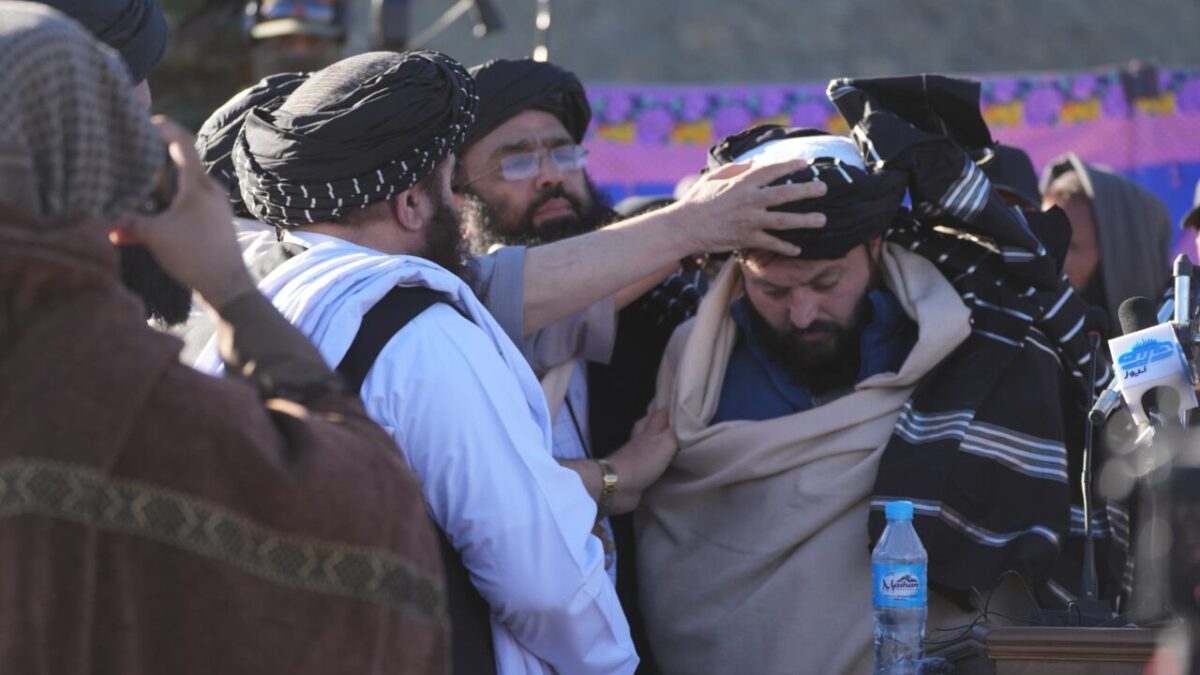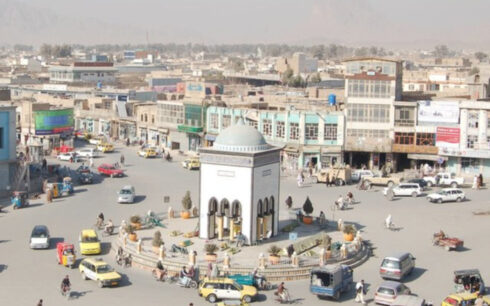KABUL, Afghanistan — Internal divisions within the Taliban have resurfaced, as sources report that the Haqqani faction sought to appoint Ahmad Haqqani, the eldest son of Khalil-ur-Rahman Haqqani, as the new minister of refugees. However, the Taliban’s leader, Hibatullah Akhundzada, rejected the request by naming Abdul Kabir, the former deputy chief minister for political affairs, to lead the ministry.
Six days after Akhundzada’s decision, there has been no official announcement of Abdul Kabir assuming his new role or any update regarding the now-vacant deputy prime minister position.
On December 13, following the funeral of Khalil-ur-Rahman Haqqani in Paktia province, Taliban officials, including Abdul Kabir, symbolically placed the turban of succession on Ahmad Haqqani’s head.
According to sources, this gesture was intended to signal to Akhundzada in Kandahar that Ahmad Haqqani was the Haqqani faction’s preferred candidate for the ministry.
For three years, the Ministry of Refugees and Repatriation was led by Khalil-ur-Rahman Haqqani, the uncle of Sirajuddin Haqqani, the Taliban’s interior minister. The ministry is viewed by the Haqqani network as a key asset.
Sources indicate that Akhundzada’s appointment of Abdul Kabir was a deliberate rejection of the Haqqani faction’s proposal, signaling his intent to consolidate authority and counterbalance the influence of the Haqqani network within the Taliban’s hierarchy.
Mohammad Asif Siddiqui, a former deputy speaker of the Senate, said the move underscores Akhundzada’s determination to prevent factional power struggles. “At Khalil-ur-Rahman Haqqani’s funeral, the turban was placed on his son’s head in the presence of Abdul Kabir and other Taliban officials, implying he should take over the ministry. But Akhundzada decided otherwise, asserting that there should be no dual leadership and emphasizing his own authority over the Haqqani network.”
Despite Akhundzada’s directive, the Ministry of Refugees and Repatriation remains without an official leader, and Abdul Kabir’s name has yet to appear on the ministry’s website or social media channels. Analysts point to the delay as evidence of mounting tensions between the Kandahari faction, loyal to Akhundzada, and the Haqqani network.
One source suggested that Abdul Kabir is reluctant to relinquish his role as Taliban’s deputy chief minister, while the Haqqani faction insists that the ministry remains under their control.





